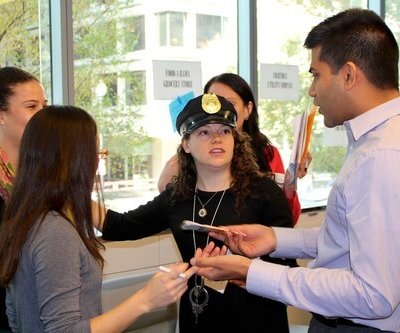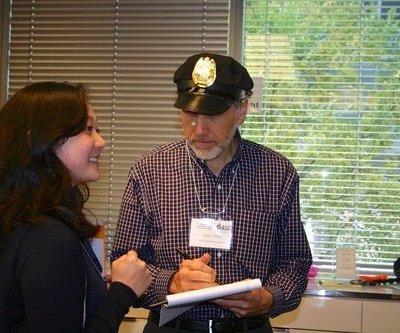With our Poverty Simulation fast approaching, we had some questions about the issues faced by low-income clients in the legal system. So we turned to Vytas Vergeer – WCL board member, Lord High Legal Director of Bread for the City, and long-suffering Chicago Cubs fan. Here's what Vytas had to say: How do the legal challenges of low-income clients differ from those faced by other clients? In a number of ways. First, many legal challenges facing low-income clients deal with life essentials – housing, income, having custody of kids, etc. Even cases about "only" money are more dire than for most clients. The smallest money judgment can lead to the client having to make choices about whether to pay for utilities or food or rent. Low-income clients generally are also less educated than other litigants, making it even more difficult for them to understand how to properly respond to pleadings or talk to the judge. Of course, their odds of hiring an attorney are much smaller than for other litigants. And even the very act of appearing in court can be more burdensome. While many higher-income clients can take days off from work and/or have regular childcare, many impoverished clients lose crucial income for every hour they are in court, and must arrange for special childcare. Even something as simple as cashing a settlement check can be a challenge for low-income clients, as many do not have bank accounts and must go to check cashing places where they pay a significant percentage of the check to get the cash. Basic assumptions that people often make are not necessarily true for low-income clients. They might not be able to read; they might not have a photo ID. Oh, I could go on .... Are there any steps attorneys can take to make the legal process run more smoothly when working with clients living in poverty? What potential pitfalls should attorneys be aware of? Attorneys should make extra effort to be aware of the extra hurdles faced by low-income clients. They must explain things carefully and in language that their clients can understand. They must spell out the consequences of decisions in detail. They need to be extra sensitive to clients saying they can or will do things that they might not be able to do – move, make certain payments, etc. Some clients are overly optimistic about how things might happen – how easily they'll be able to find a new place, for example. Others don't want to admit that they don't have the money to make a payment. They should be coached carefully about how to behave in front of a judge, mediator, with the other side. Attorneys need to be aware that low-income clients might not be as tuned to the idea of a schedule, might not appear on time for appointments, might run out of cell phone minutes. These clients might flat out not be able to afford to come to an appointment or multiple court appearances. Attorneys should also be aware of other issues - legal and otherwise - that might affect the case or how the client sees it. Even if a lawyer is not going to represent someone in another matter, that matter could have a direct bearing on the case the lawyer is working on. Not receiving SSI benefits can influence a landlord/tenant settlement, for example. In short, lawyers in these cases need to try to anticipate all sorts of little and big problems that could come up that might not come up with other clients. What barriers often stand in the way of low-income people qualifying for and obtaining government services to make ends meet? The biggest is probably just that many clients lack the wherewithal to present their situations to the government agencies in a the way the government agency wants them to. They might not put the right words on the paperwork, not understand that the ball is in their court to get more information, might not realize that they're only given one appointment before a matter is sent to the bottom of the pile, not know how to request medical records, etc. All of the other hurdles noted above also have an impact on clients' ability to access government benefits. Additionally, they might be more likely to take a government worker's word as valid. If a government worker says that someone isn't qualified or that they can't do something, the client might well believe it and give up, whereas an attorney or someone more used to advocating for him or herself might challenges such assertions. Do you think most low-income people are aware of their legal rights and entitlements? If not, how can attorneys can better communicate this information? Not at all. Once an attorney is involved, communicating the information is easy, well easier. But how to get information to people before they get into legal trouble is much harder. Projects that focus on the place where people most need the information - court-based or agency-based resource centers, for example - can be excellent in this regard, getting clients timely information on the spot. Encouraging people to attend easily accessible information sessions held where and when people might already be - after church, at their social club or community gathering - can also be effective. What is the most pressing legal need for most low-income families right now? Having a lawyer…








